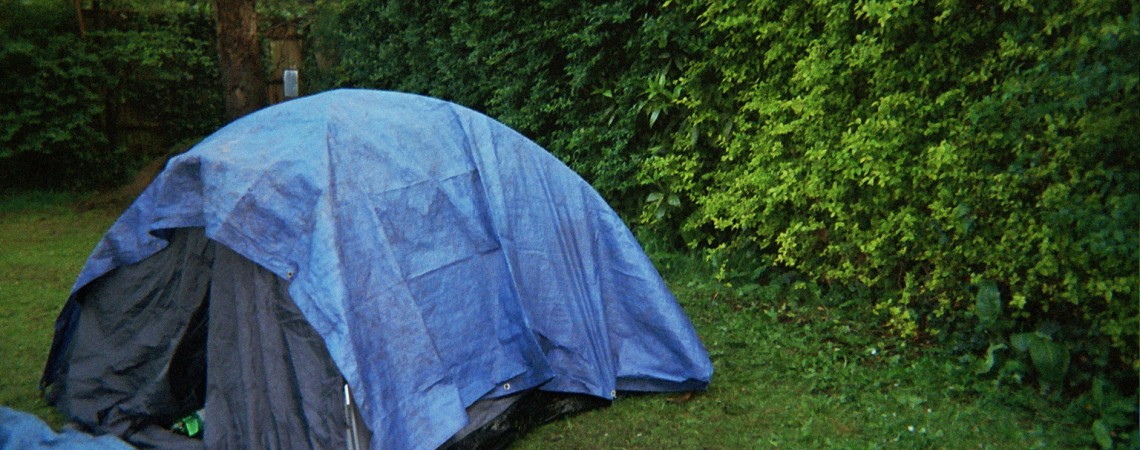Pauline Hadaway's articles
ROUGH JUSTICE
Tate Exchange Liverpool
2.00 – 4.00 pm, Tuesday 23 January 2018
Albert Dock
Liverpool Waterfront
Liverpool L3 4BB
Book via Eventbrite
At the start of the 21st century, in one of the world’s richest economies, why should the problem of homelessness seem so intractable? Should we blame government welfare changes, including the introduction of Universal Credit and cuts to housing benefit? Does the problem lie with the shortage of affordable housing? Or is there a problem with a growing culture of illegal street behaviour? Should we be arguing for better support services, changes in societal attitudes, or simply more affordable homes? Join the Liverpool Salon and Museum of Homelessness to debate the crisis of homelessness today, in Liverpool and across the UK. This event is a partnership between the Liverpool Salon and Museum of Homelessness and part of State of the Nation conversation on Homelessness at Tate Exchange Liverpool. Museum of Homelessness will be presenting Frequently Asked Questions an artwork by Anthony Luvera exploring the support and services available to homeless people around the UK.
Speakers
 Julie Fadden is Chief Executive of South Liverpool Homes. She joined the organisation in 2005, bringing more than 25 years of local authority and housing management experience to her role. For the past 12 years she has proved that if you have the right people and the right focus, you can achieve fantastic results. This approach has turned a loss-making organisation into a profitable one, a blame culture into the best not-for-profit company to work for (for four years running) and a poor performing housing service into one of the best in the country. From May 2016 to September 2017, Julie served as President of the Chartered Institute of Housing where she campaigned for organisations to work together to end homelessness for good. During this time she raised over £60K for homelessness charity, Crisis UK.
Julie Fadden is Chief Executive of South Liverpool Homes. She joined the organisation in 2005, bringing more than 25 years of local authority and housing management experience to her role. For the past 12 years she has proved that if you have the right people and the right focus, you can achieve fantastic results. This approach has turned a loss-making organisation into a profitable one, a blame culture into the best not-for-profit company to work for (for four years running) and a poor performing housing service into one of the best in the country. From May 2016 to September 2017, Julie served as President of the Chartered Institute of Housing where she campaigned for organisations to work together to end homelessness for good. During this time she raised over £60K for homelessness charity, Crisis UK.
 Dave Clements is a writer, adviser to local government, and first convened the Social Policy Forum at the Institute of Ideas in 2008. He has over 15 years experience in policy and strategy development, in children’s, adults’ and integrated services, working across the public and charity sectors. Dave is contributing co-editor of The Future of Community (Pluto, 2008), author of Social Care for Free Citizens (Manifesto Club, 2010) and a contributor to The Future of the Welfare State (Axess, 2017). He also writes widely on contemporary policy culture for publications including the Guardian and Huffington Post; and online journal spiked. An archive of his writing can be found here.
Dave Clements is a writer, adviser to local government, and first convened the Social Policy Forum at the Institute of Ideas in 2008. He has over 15 years experience in policy and strategy development, in children’s, adults’ and integrated services, working across the public and charity sectors. Dave is contributing co-editor of The Future of Community (Pluto, 2008), author of Social Care for Free Citizens (Manifesto Club, 2010) and a contributor to The Future of the Welfare State (Axess, 2017). He also writes widely on contemporary policy culture for publications including the Guardian and Huffington Post; and online journal spiked. An archive of his writing can be found here.
Follow Dave on Twitter @daveclementsltd
 Anthony Luvera is an Australian artist, writer and educator based in London. His work has been exhibited widely in galleries, public spaces and festivals, including the British Museum, London Underground’s Art on the Underground, National Portrait Gallery London, Belfast Exposed Photography, Australian Centre for Photography, PhotoIreland, Malmö Fotobiennal, Goa International Photography Festival, and Les Rencontres D’Arles Photographie. His writing appears regularly in a wide range of publications including Photoworks, Source and Photographies. Anthony is Principal Lecturer and Course Director of MA Photography and Collaboration at Coventry University. He also designs education and mentorship programmes, facilitates workshops, and gives lectures for the public education departments of the National Portrait Gallery, Royal Academy of Arts, The Photographers’ Gallery, Photofusion, Barbican Art Gallery, and community photography projects across the UK. www.luvera.com
Anthony Luvera is an Australian artist, writer and educator based in London. His work has been exhibited widely in galleries, public spaces and festivals, including the British Museum, London Underground’s Art on the Underground, National Portrait Gallery London, Belfast Exposed Photography, Australian Centre for Photography, PhotoIreland, Malmö Fotobiennal, Goa International Photography Festival, and Les Rencontres D’Arles Photographie. His writing appears regularly in a wide range of publications including Photoworks, Source and Photographies. Anthony is Principal Lecturer and Course Director of MA Photography and Collaboration at Coventry University. He also designs education and mentorship programmes, facilitates workshops, and gives lectures for the public education departments of the National Portrait Gallery, Royal Academy of Arts, The Photographers’ Gallery, Photofusion, Barbican Art Gallery, and community photography projects across the UK. www.luvera.com
Chair
 Pauline Hadaway has worked in arts and education in the UK and Ireland since 1990 and is co-founder of The Liverpool Salon, a new forum for public debate on Merseyside. She is undertaking a professional doctorate at the University of Manchester’s Institute of Cultural Practices, researching different uses of cultural heritage as a tool for peace-building in Northern Ireland and Britain. She has been published widely including: Policing the Public Gaze (2009), published by The Manifesto Club; Re-imagining Titanic, re-imaging Belfast, in Relaunching Titanic: Memory and Marketing in the ‘Post Conflict City (2013) and Escaping the Panopticon, Photography Reframed (2017).
Pauline Hadaway has worked in arts and education in the UK and Ireland since 1990 and is co-founder of The Liverpool Salon, a new forum for public debate on Merseyside. She is undertaking a professional doctorate at the University of Manchester’s Institute of Cultural Practices, researching different uses of cultural heritage as a tool for peace-building in Northern Ireland and Britain. She has been published widely including: Policing the Public Gaze (2009), published by The Manifesto Club; Re-imagining Titanic, re-imaging Belfast, in Relaunching Titanic: Memory and Marketing in the ‘Post Conflict City (2013) and Escaping the Panopticon, Photography Reframed (2017).
The Debate
According to statistics published by the Department for Communities and Local Government, homelessness has been rising in the UK since 2010. Over and above the official data, homelessness charities point to the scandal of hidden homelessness affecting ‘potentially millions of sofa surfers’ and families bringing up children in unsuitable temporary accomodation. Meanwhile rough sleeping has risen dramatically with numbers of people with an identified mental health support need increasing three-fold since 2009-10 as a recent study by housing charity Shelter, found that 307,000, or one in every 200, people are now either sleeping rough or in temporary accommodation.
Liverpool has seen an increase of almost 20% in people asking for help and advice over homelessness issues since 2010, with more than 6,000 queries last year. The number of people sleeping rough on the streets of Liverpool is also visibly on the rise. However, in spite of the best efforts of many individuals working in services designed to support homeless people, a recent study found a high degree of consensus among people with lived experience of homelessness that the current system on Merseyside is not working effectively for people with complex needs. Recently elected Metro Mayor Steve Rotheram has called for new approaches to help rough sleepers, through the Housing First model, which advocates getting people into a house or flat as quickly as possible and then providing them with visiting support services. However a 2017 report commissioned by Liverpool City Council points to deep structural and political problems that challenge easy solutions, while drawing a distinction between rough sleeping, homelessness, begging and ‘problems linked to ‘wider crime and criminal offences’.



0 comments